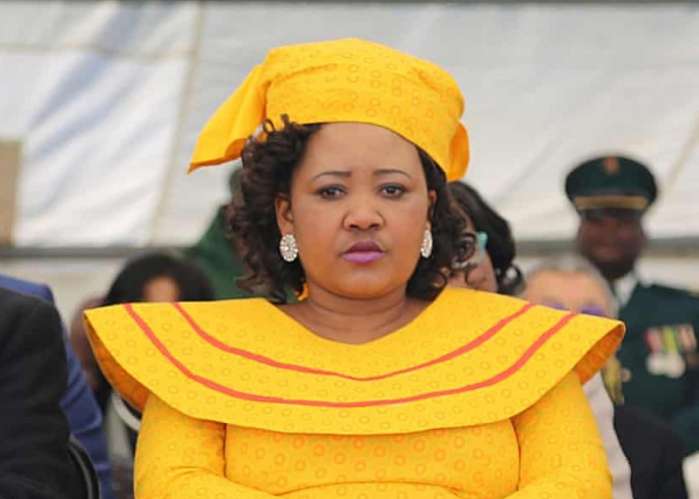Lesotho’s First Lady charged with murdering husband’s first wife

Murder, mystery, suspense and political drama — the cocktail of events playing out in Lesotho belong in a best-selling thriller.
But it is the lived reality of a small southern African kingdom teetering on the brink.
Lesotho’s picturesque mountains and ski resorts have earned it the moniker of Africa’s Switzerland. But lately the country has been rocked by scandal, with the first family sucked into the long unresolved murder of the prime minister’s previous wife.
In 2017, 58-year-old Lipolelo Thabane was gunned down near her home, just two days before Prime Minister Thomas Thabane was sworn into office.
The premier and his then wife were engaged in a bitter divorce at the time.
Two months after Thabane assumed office, he married Maesaiah, now aged 43.
Last week, she was charged in connection with the murder of her rival.
Thabane’s election had brought hopes of stability to Lesotho, which has a long history of political turmoil.
He first came to power in 2012 as the head of the country’s first coalition government, formed after an inconclusive vote.
But the start of his second term was rocked by Lipolelo’s murder, which sent shock waves through the tiny kingdom of 2.2 million people.
The now 80-year-old prime minister was also questioned last month after investigations revealed that communication records from the day of the murder picked up his cell phone number.
“That put a personal crisis on top of a political crisis that had been going on for almost a year,” said Nqosa Mahao, the deputy president of Thabane’s ruling All Basotho Convention (ABC).
Mahao, who has been at odds with Thabane since he was elected deputy last year, has said Lipolelo’s murder had “foredoomed this government”.
A faction of the troubled party has since asked Thabane to resign. He agreed to go on the grounds of his advanced age, but has yet to give a date for his departure.
It has been more than a decade since a prime minister served out a full five-year term in Lesotho.
Thabane has already fled the country once.
His 2012 coalition government was marred by political bickering, which culminated in an army-led coup in August 2014.
The prime minister sought exile in South Africa after soldiers attacked police posts and surrounded his official residence.
He returned home in 2017 and successfully ran for re-election.
Yet once again, his party has been rocked by ructions and is split down the middle. The alleged link to the murder of his previous wife has only added to his woes.
“We as a country have never had to sink so low, the second highest office in the country (after King Letsie III) linked to crime,” Mahao said. “We as a nation are traumatised.”
He said the scandal, which sparked headlines both at home and abroad, “has battered the image of the country”.
“We were already the region’s mischievous boy even before this crisis,” he told AFP in the capital Maseru.
“Whoever imagined that the (murder) crime would” reach the prime minister’s office, he asked.
The Democratic Congress — the main opposition party founded by Thabane’s predecessor Pakalitha Mosisili — could not agree more.
“The rule of law in this country has collapsed and the executive has become the law unto itself,” said its current leader Mathibeli Mokhothu.
He said Thabane’s link to a murder “brings shame on us… He is the face of the country”.
“We are all disgruntled, and instability is at levels never seen before,” Mokhothu told AFP, backing calls for the “old and tired” Thabane to step down.
Parties in Thabane’s coalition also want him gone.
“In other democracies once there is such an allegation against a head of state, (he) automatically would voluntarily resign,” said Machesetsa Mofomobe, deputy president of the Basotho National Party speaking from his party headquarters.
“We are also calling on him to call it a day,” Mofomobe said.
Thabane’s party has yet to agree on a successor to serve out his term after he leaves office.
The next national elections are due in 2022.
On the streets people are jaded.
“We don’t know what is going on in our country,” said civil servant Dineo, 38, declining to give her full name.
“We keep on electing these people and they keep on disappointing us. This is the last straw.”
“(Thabane) is one person who we had so much faith in,” she added, vowing “never ever” to vote again as she left a Sunday morning church service. (AFP)

